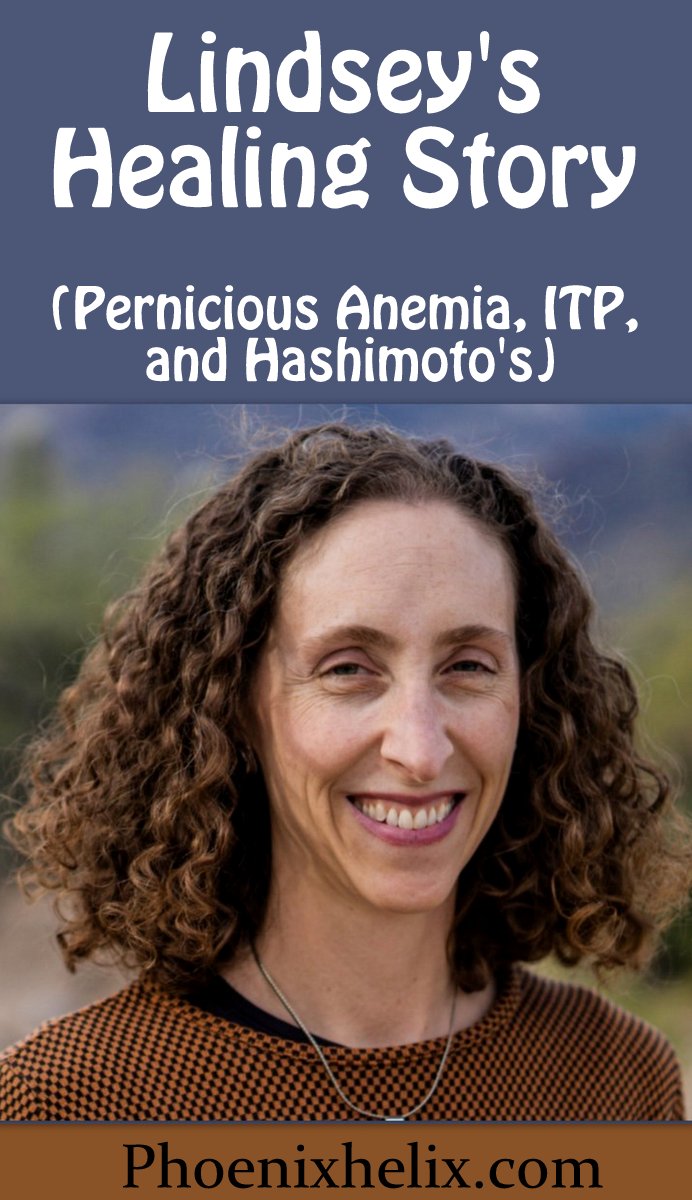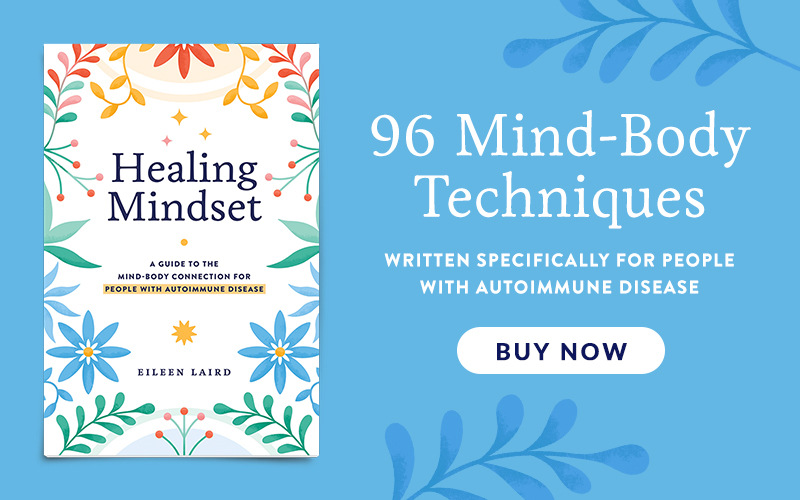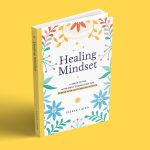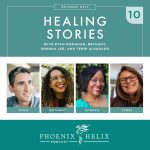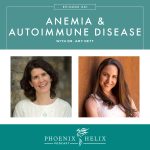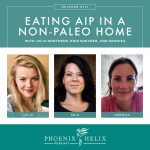
“I believe absolutely that it is in sharing the most vulnerable aspects of our journeys that we support each other to find grace and strength and healing during equally challenging times.”
~ Baden Lashkov
Living a Resilient Autoimmune Life
When you have one autoimmune disease, you’re more likely to develop another, and that has been Lindsey Parsons’ experience. She got three diagnoses within one year: Hashimoto’s thyroiditis, idiopathic thrombocytopenic purpura (ITP), and pernicious anemia. She was lucky to get diagnosed early before symptoms became severe. When conventional doctors offered little in the way of treatment and suggested a “wait and see” approach, she took her health into her own hands.
What were your first symptoms? When did you learn what it was?
For Hashimoto’s, my first symptom was an enlarged thyroid (and nodules were found). For pernicious anemia, it was tingling/numbness in my arms. And for ITP, it was a low platelet count. I saw a number of doctors and specialists and received all three diagnoses within roughly the same year. However, for six years before that I had been experiencing gut issues with no known cause.
Can you describe what it was like for you when your condition was at its worst?
At its worst my Hashimoto’s thyroglobulin antibodies were at 103, and I had three thyroid nodules that required me to get a needle biopsy – very unpleasant. I had numbness and tingling in my arms from lack of B12 and my platelets (from ITP) were at 131. I was lucky as my conditions were discovered early so my symptoms never got terrible.
What treatment methods did you try before dietary intervention – conventional or alternative?
I was told by my endocrinologist that I should just wait until my thyroid was destroyed by the Hashimoto’s and then start taking thyroid hormones, but there was nothing to do at the time as my TSH wasn’t elevated. I got a B12 injection from the hematologist for the pernicious anemia and then did sublingual B12 lozenges (luckily I picked methylcobalamin by accident as I later found out I have one heterozygous MTHFR mutation). For my platelets, the doctor told me to just wait and see if they get too low. There was no treatment offered. But all of this advice was through conventional doctors.
Which healing diet(s) did you choose?
I ended up doing an elimination diet and settling on no gluten, dairy, corn, sugar, alcohol or soy, plus much more of an emphasis on organic foods and healthy fats, along with supplements.
How fast did you see results?
In six months my thyroid antibodies went from 103 to 15.5.
Beyond autoimmune symptoms, did other areas of health improve?
The tingling in my arms went away after the B12 injection. I stopped being constantly bloated and my acid reflux went away when I finally got off dairy. The pain I would wake up with in my stomach also went away.
What symptoms still remain?
When I occasionally splurge and eat pizza (with digestive enzymes) I get a lot of acid reflux. My nails are still thin and crack easily and I still have a low red blood cell count.
What other things do you do outside of diet to support your health and healing?
I take regular supplements, exercise regularly, get 7-8 hours of sleep a night, and have done protocols to get rid of SIBO and SIFO (twice for the latter). I also tried a fecal microbiotic transplant (FMT) once (which was part of my inspiration for my podcast The Perfect Stool). The inspiration for my FMT was reading so many books about the microbiome and the amazing things it was responsible for. I did have a positive response: my stool quality improved and my B12 levels shot up. I then did a 3-month experiment with my hematologist to see what would happen if I then went on oral but not sublingual B12 and my levels dropped again. So, the FMT wasn’t a cure, and I definitely still need sublingual B12.
What role has medication played in your journey?
I’ve never had to take any prescription medication.
How strict were/are you on the dietary protocol? Any “cheats”?
I was really strict for like 6 months, then added back in corn, alcohol and soy at different points, tracking my Hashimoto’s antibodies at each turn. My antibodies have stayed low, so I’m a little more liberal with cheats, and probably eat gluten and dairy about once every 2-3 weeks with apparently no ill effects that I can discern outside of an acidy stomach. I’ll continue to track my Hashimoto’s antibodies, which are currently normal. I do follow a gluten-free, dairy-free, sugar-fee diet 99% of the time.
Do you intend to do this diet forever, or do you hope to wean yourself off it eventually?
I expect to do this forever. Dairy is just terrible for me because I’m lactose intolerant, and getting off dairy got rid of my acid reflux. I don’t seem to be intolerant to gluten, but most foods containing it aren’t nutrient dense and it opens up temptations to eat unhealthy, sugary foods. For that reason, I rarely eat it.
What were/are the challenges for you in sticking to the diet?
My family wants to order pizza every 2 weeks on take out night and there’s a great Neopolitan pizza place nearby. I can’t resist! Not to mention burrata, naan and other such temptations on restaurant menus or being eaten in front of me all the time. My family is supportive to a point, but not a one of them is willing to change their diet in the least.
Editorial note: For anyone in a similar situation, here’s a podcast that may be helpful: Eating AIP in a Non-Paleo Home.
Who supports you in your healing journey?
In a way it’s my clients who support me (I’m a health coach). As I see them getting better, I’m encouraged to be persistent in maintaining my health – I know it could be a lot worse.
With autoimmune disease, there are many potential triggers and root causes. Were there any events in your life that you think contributed to your diagnosis?
It happened after my pregnancy but I had endometriosis before then, so I think problems were underway long before it was discovered. I’d also say chronic stress over many years probably played a role.
What advice would you give to people with autoimmune disease who are just starting to consider diet and lifestyle changes?
It’s worth it to do this, even if it’s hard at first, especially when you’re doing an elimination diet. And it’s really helpful to have a coach to help you, as sticking it out through eliminating and carefully and slowly reintroducing foods requires a lot of self-control. Also, diet and lifestyle isn’t everything – many people with autoimmune disease have gut infections that are at least partially responsible for the leaky gut that is a necessary predecessor to autoimmune disease. Get professional help to diagnose and deal with those things along with changing your diet, and your healing process will be speeded up.
Lindsey is now a health coach who works with people 1:1. She also hosts a podcast called The Perfect Stool. Connect with her through her website: High Desert Health.
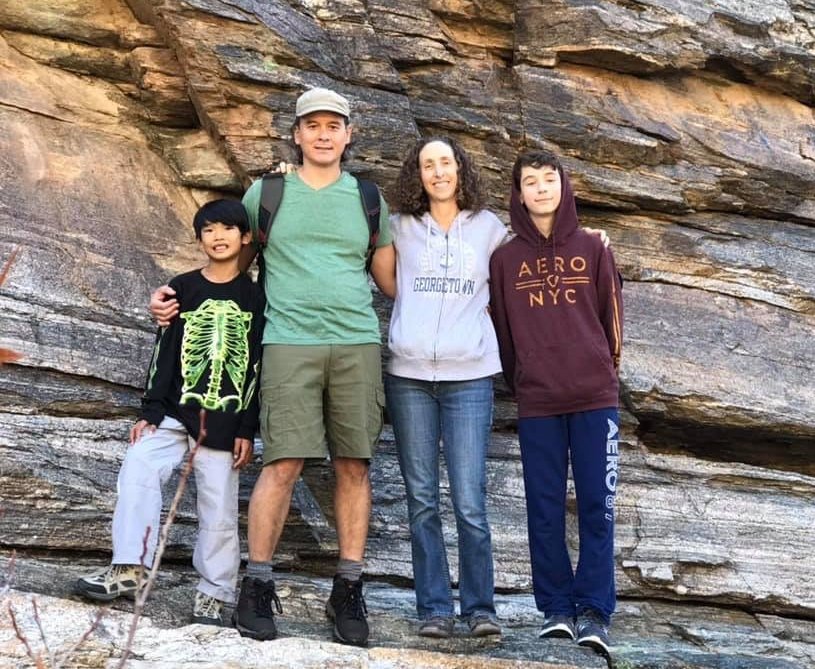
Other Healing Stories
This is part of a series of autoimmune success stories. Click here to see the full list. They are also a regular feature of my podcast: Phoenix Helix.

